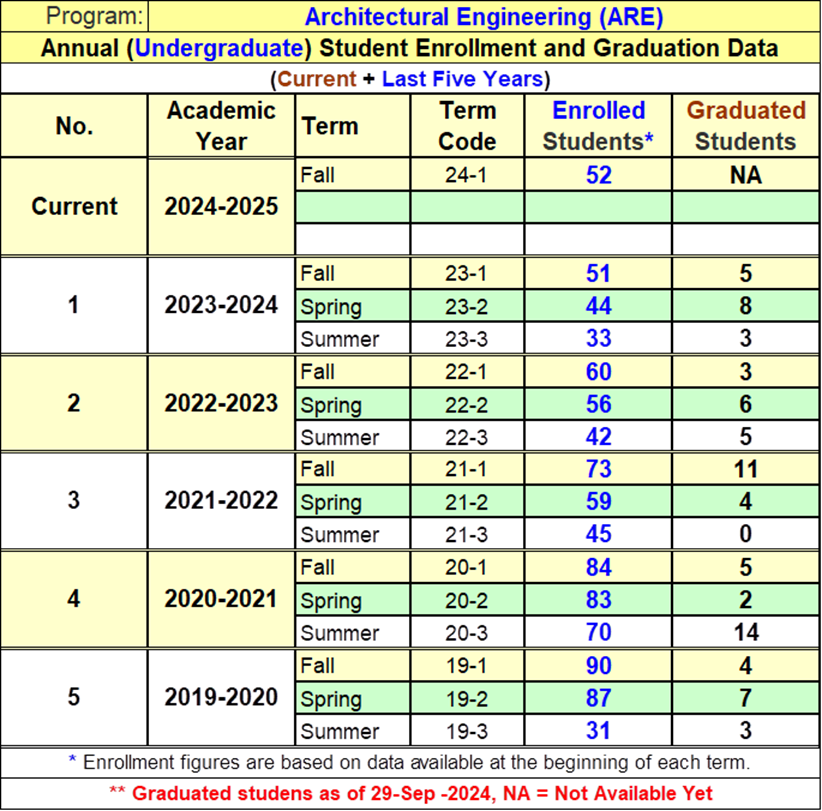The undergraduate program BS in Architectural Engineering in the Architectural Engineering and Construction Management Department is accredited by the Engineering Accreditation Commission (EAC) of ABET, http://www.abet.org/, under the General Criteria and the Architectural Engineering Program Criteria.
The revised undergraduate program in Architectural Engineering is designed to graduate professionals in few years i.e. 3-5 years from graduation - will be:
- Capable of developing and implementing creative and sustainable building design, construction and management solutions based on sound engineering principles and ethics as demanded by the work and the profession.
- Qualified to meet the challenges of working in a multi-disciplinary environment and assuming leadership responsibilities in diverse areas of the architectural engineering field.
- Engage in lifelong learning to meet evolving engineering challenges and pursue opportunities in local and global contexts to better serve society
Student Outcomes (SOs)
Student Outcomes (SOs) describe what students are expected to know and be able to do by the time of graduation. These relate to the skills, knowledge, and behaviors that students acquire as they progress through the program. Attainment of these outcomes prepares graduates to enter the professional practice of engineering.
The Architectural Engineering program adopted the ABET a-k Student Outcomes. However, starting the fall semester of 2018 (Semester 18-1) the program adopted the following SOs:
The Architectural Engineering students will have the ability to:
- identify, formulate, and solve complex engineering problems by applying principles of engineering, science, and mathematics.
- apply engineering design to produce solutions that meet specified needs with consideration of public health, safety, and welfare, as well as global, cultural, social, environmental, and economic factors.
- communicate effectively with a range of audiences.
- recognize ethical and professional responsibilities in engineering situations and make informed judgments, which must consider the impact of engineering solutions in global, economic, environmental, and societal contexts.
- function effectively on a team whose members together provide leadership, create a collaborative and inclusive environment, establish goals, plan tasks, and meet objectives.
- develop and conduct appropriate experimentation, analyze and interpret data, and use engineering judgment to draw conclusions.
- acquire and apply new knowledge as needed, using appropriate learning strategies.
